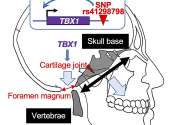Study finds cooperation can still evolve even with limited payoff memory
Direct reciprocity facilitates cooperation in repeated social interactions. Traditional models suggest that individuals learn to adopt conditionally cooperative strategies if they have multiple encounters with their partner. ...









